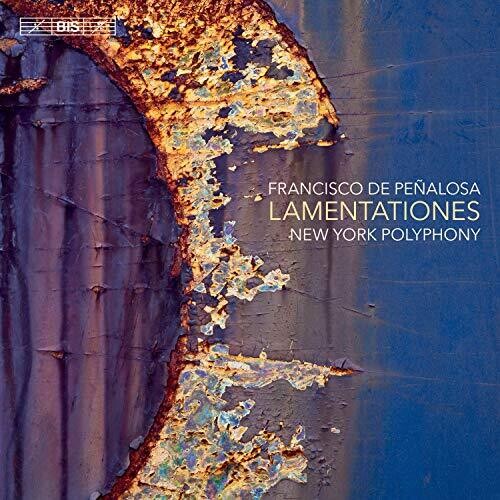Show results for
Deals
- 4K Ultra HD Sale
- Action Sale
- Alternative Rock Sale
- Anime sale
- Award Winners Sale
- Bear Family Sale
- Blu ray Sale
- Blu ray Special Editions
- Blues on Sale
- British Sale
- Classical Music Sale
- Comedy Music Sale
- Comedy Sale
- Country Sale
- Criterion Sale
- Electronic Music sale
- Hard Rock and Metal Sale
- Horror Sci fi Sale
- Kids and Family Sale
- Metal Sale
- Music Video Sale
- Musicals on Sale
- Mystery Sale
- Naxos Label Sale
- Page to Screen Sale
- Rap and Hip Hop Sale
- Reggae Sale
- Rock
- Rock and Pop Sale
- Rock Legends
- Soul Music Sale
- TV Sale
- Vinyl on Sale
- War Films and Westerns on Sale

Lamentationes
- (Hybrid SACD)
- Format: SACD
- Release Date: 9/6/2019

Lamentationes
- (Hybrid SACD)
- Format: SACD
- Release Date: 9/6/2019
- Label: Bis
- UPC: 7318599924076
- Item #: 2198111X
- Genre: Classical
- Theme: Renaissance Era
- Release Date: 9/6/2019

Product Notes
Renaissance music from Spain has come to mean the works of composers such as Tomás Luís de Victoria or Francisco Guerrero rather than their predecessors. But composers such as Francisco de Peñalosa - who died in 1528, the same year that Guerrero was born - were musicians of genuine imagination and skill, whose work often shows a formidable individuality. The most recent edition of Peñalosa's oeuvre lists 22 works as genuine: masses, lamentations, hymns and motets. From these, New York Polyphony have selected two highly expressive Lamentations, intended for services held during Holy Week and setting biblical texts bemoaning the destruction of Jerusalem in 586 BC. Besides two brief motets, Peñalosa is also represented by sections from his Missa L'homme armé, one of the many examples from the 15th to the 17th century of cyclic masses based on secular melodies. These pieces by Peñalosa are brought into relief by shorter works by his near-contemporary Pedro de Escobar - a deeply haunting setting of the beginning of the hymn Stabat Mater - and the aforementioned Francisco Guerrero. Guerrero is represented by Quae est ista, a setting of words from the Song of Songs which have inspired the composer to ecstatic cascades of notes. In contrast his Antes que comáis a Dios, with a text in Spanish, is simple but effective, in a propulsive triple time.

